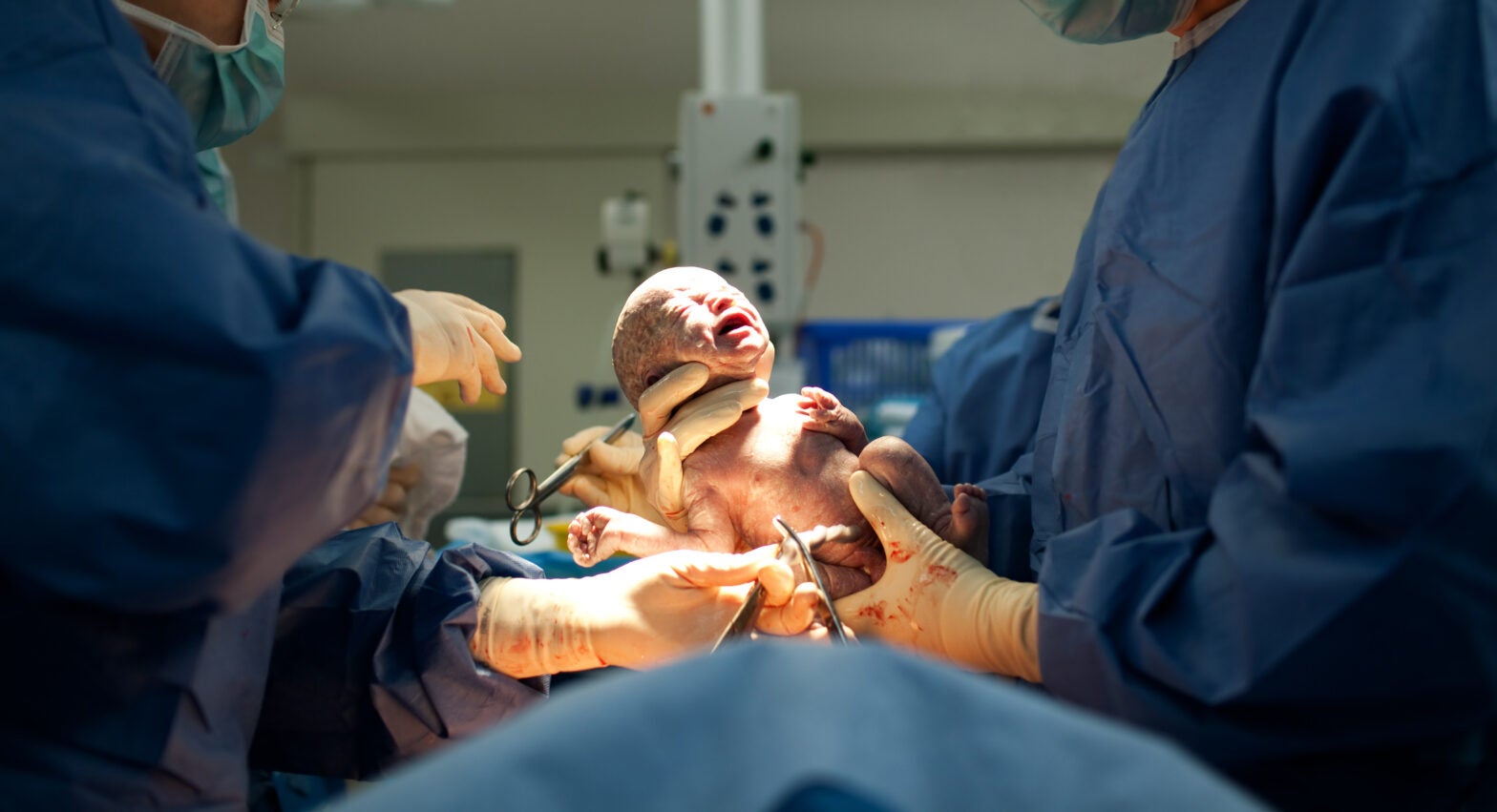FOR IMMEDIATE RELEASE
Aug. 9, 2017
Edited June 22, 2022
BOSTON — As C-section rates around the globe continue to climb, a new study shows that women who give birth by cesarean may face significant long-term health risks later in life, including an increased risk of needing a hysterectomy and more surgical complications when undergoing a hysterectomy.
The observational study, published in the Aug 9 issue of JAMA Surgery, was led by researchers at Aalborg University in Denmark and at Ariadne Labs in Boston. They examined a nationwide database of all women who gave birth over a 20-year period in Denmark. The records of 7,685 women, who had a mean age of 40, were included in the study.
More than 23 million women across the globe have C-sections each year, making it the most common surgery in the world by far. More than one million women have hysterectomies later in life to remove their uterus, most often because of pain and/or bleeding. While the short-term risks of C-sections have been well documented, this study is the first population-wide analysis of long-term harms to women resulting from cesarean delivery.
“While mothers in many parts of the world do not have safe and timely access to C-sections, most countries that have the capacity to do C-sections seem to err on the side of doing too many,” said obstetrician and study co-author Dr. Neel Shah, founder of the Delivery Decisions Initiative at Ariadne Labs. “In the United States, about half the C-sections we do appear to be avoidable. This study is the first to estimate the potential population-wide harms of this trend to mothers over the long term.”
“Because women often have more than one baby, we are the only surgeons that routinely cut on the same scar over and over again,” said Shah, “and that makes surgery technically harder each time. C-sections and hysterectomies are two of the most common surgeries performed on women, and those who require both may be at significantly higher risk of complications.”
Researchers found that women who had at least one birth and later had a hysterectomy were 50 percent more likely to have delivered their baby by C-section than the general population, suggesting that receiving a C-section may put women at higher risk of needing a hysterectomy later in life. Among women undergoing a hysterectomy, those who had previously had a C-section were 16 percent more likely to experience postoperative complications such as bleeding or infection compared to those who had given birth vaginally, and 30 percent more likely to require reoperation.
Researchers acknowledged several limitations of the study due to its observational design, including difficulty accounting for other factors that could affect these risks.
“In Denmark, the national C-section rate is 19.9 percent and we do approximately 6,000 hysterectomies per year,” said Dr. Thomas Laren, a study co-author and president of the Danish Society of Obstetrics and Gynecology. “By contrast, the United States has a much higher C-section rate of 32 percent and does nearly half a million hysterectomies per year. I would expect that in the U.S., and other countries that perform more c-sections, the long term harms are even greater than those we observed in Denmark.”
Study authors concluded that the results support policies and clinical efforts to prevent cesarean deliveries that are not medically necessary. The Delivery Decisions Initiative (DDI) at Ariadne Labs is a research and social impact program focused on transforming childbirth care so that every person can start or grow their family with dignity. TeamBirth, a key project of DDI, is a care process that aims to ensure people giving birth and the clinicians who are caring for them have shared input and understanding into decisions during labor and delivery, including whether a patient undergoes a C-section. A recent paper found that 99% of people delivering at a hospital using TeamBirth had the role they wanted in their birth experience, and 94% of clinicians reported that it improves care for patients.
Media Contact:
Brigid Tsai
Ariadne Labs Director of Communications
btsai@ariadnelabs.org



